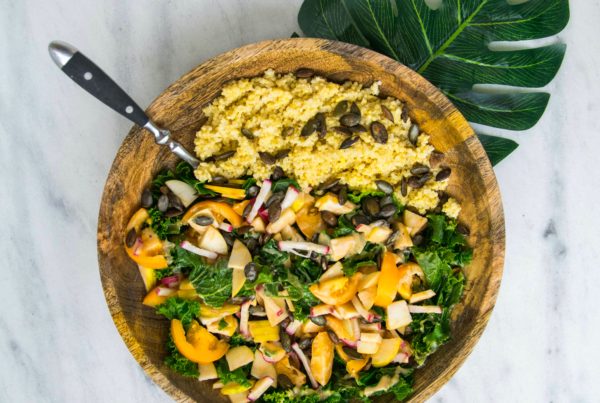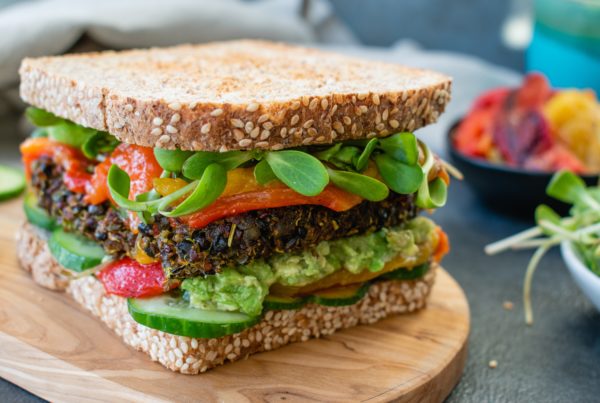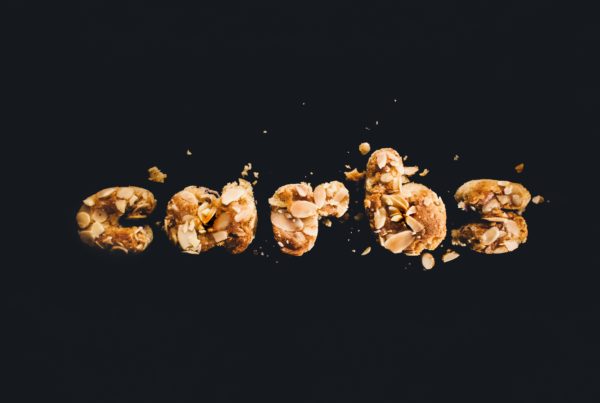At this very moment, you are reading this article, you are breathing, probably you are also sitting on a chair, taking some notes on the new material, or maybe just laying on a bed. All these actions could not be possible without energy – the most fascinating property that is “hidden” in the foods you eat.
Definition of Metabolism
Once you eat a slice of pizza or a piece of cake, your body immediately starts to use its nutrients to provide each cell of your body with precious energy and building blocks to function. This process is called metabolism. In order words, metabolism is the sum of all the chemical reactions that are going on in your cells by which your body gets and uses the energy stored in the foods you eat. The three main food constituents that can store this energy are carbohydrates, lipids, and proteins. Yes, there is also one other constituent, alcohol, that also carries calories, but it is definitely not a nutrient!
Can You Boost Your Metabolism?
It turned out that the speed of your metabolism mainly depends on your genes. That might be also extremely surprising but recent scientific data shows that metabolism does not decrease over the years, so your body’s ability to burn the calories you eat stays pretty much the same whether you are in your twenties or sixties . To make such a conclusion, scientists have spent a decade in a lab because understanding the way your body expends energy from foods is a super challenging task. So, next time you hear that some foods or supplements can boost or reset your metabolism, we assure you that we probably do not have enough data yet to conclude it and cannot know it for certain. But what we do know right now is that it is not metabolism but primarily your genes, poor diet, and low levels of physical activity in your routine that are the key factors responsible for weight changes.
Scientifically Based Strategies to Lose Weight
Although genes define your body size, proper nutrition and physical activity can contribute to it no matter whether you want to lose or gain weight. Everything is in your hands! According to a variety of professional health organizations and universities, the most effective weight gain strategies are as follows (Nutrition Guideline Adult Obesity Care; University of California San Francisco; Health Link BC):
- Have a caloric deficit of 500 Calories per day (Withney, 2015). For reaching this goal, the best option would be to increase your physical activity.
- Eat frequently. Try to include in your daily diet at least 5 meals as it will help you always feel satiety.
- Choose food that has few calories but lots of nutrients, for example, vegetables and fruits that are full of vitamins, minerals, and fiber.
- Limit the consumption of high-fat foods, foods with added sugar, and alcoholic beverages.
- Do not focus on losing weight, focus on getting healthier and stronger.
- Be physically active. Not only will it help you increase energy expenditure, but it also will help you control your appetite and enhance your well-being.
- At the beginning of your weight loss journey, start to keep a food and exercise log for finding problem spots to adjust your routine in the most efficient way.
Reviewed by Annie Tsang, RD.
References
Bouchard, C., Perusse, L., Deriaz, O., Despres, J. P., & Tremblay, A. (1993). Genetic Influences on Energy Expenditure in Humans. Critical Reviews in Food Science and Nutrition, 33(4–5). https://doi.org/10.1080/10408399309527631
Martini, F. H., Ober, W. C., Nath, J. L., Bartholomew, E. F., & Petti, K. (2019). Visual Anatomy and Physiology (3rd Edition). Pearson Education Inc.
Pontzer, H., Yamada, Y., Sagayama, H., Ainslie, P. N., Andersen, L. F., Anderson, L. J., Arab, L., Baddou, I., Bedu-Addo, K., Blaak, E. E., Blanc, S., Bonomi, A. G., Bouten, C. V. C., Bovet, P., Buchowski, M. S., Butte, N. F., Camps, S. G., Close, G. L., Cooper, J. A., … Speakman, J. R. (2021). Daily energy expenditure through the human life course. Science, 373(6556). https://doi.org/10.1126/science.abe5017
Pontzer, H. (2023, January 1). New Human Metabolism Research Upends Conventional Wisdom about How We Burn Calories. Retrieved January 20, 2023, from https://www.scientificamerican.com/article/new-human-metabolism-research-upends-conventional-wisdom-about-how-we-burn-calories/
Rajender Rao, K., Lal, N., & Giridharan, N. v. (2014). Genetic & epigenetic approach to human obesity. In Indian Journal of Medical Research (Vol. 140).
Whitney, E. N., Rolfes, S. R., Hammond, G., Piché, L. A. (2015). Understanding Nutrition (2nd Canadian ed.). Lenore Taylor-Atkins.



